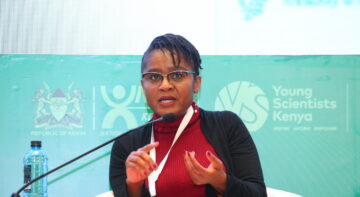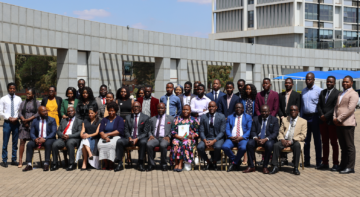News

On 6-7 March 2018 in Nairobi, Kenya, The Think Tank Initiative (TTI), the International Development Research Centre (IDRC) and the MasterCard Foundation will host an African Evidence-Informed Policy Forum.
While there has been extensive evidence that development research, when done effectively, can improve public policy and help in accelerating development progress, results have also shown that in many Lower and Middle-Income Countries (LMICs), data, evidence, and analysis are unable to significantly inform public policy processes. It is within, and as a response to, this contradiction that a mixed group of key African evidence-to-policy actors will convene at this forum.
The forum will bring together researchers, donors, policymakers, academics, and members of the private sector and in various sessions over the two days, these actors will examine the African policy landscape and make considerations on how best to meet this challenge.
AFIDEP’s Dr. Eliya Zulu and Dr. Rose Oronje will participate in the forum. Dr. Oronje will speak in the afternoon of the Tuesday session: “Experiences of building strategic partnerships to promote evidence-informed policymaking in the African context”. This session is aimed at exploring how collaboration has contributed to strengthening evidence-informed policy, and at discussing the factors that made these partnerships successful. Dr. Zulu will speak on Wednesday morning during the session: “How to incentivize actors in the Evidence-Informed Policy ecosystem to better work together to achieve impact”. The objective of this session is to identify the incentives that support collaboration to generate, share and use evidence to inform policy and practice.
Over the rest of the sessions during the two days, more than two dozen Africa policy specialists will participate at the forum to share lessons and recommendations on how best researchers, policymakers and other stakeholders can bring timely, relevant, and reliable new knowledge to have a significant influence on policy decisions in LMICs. Lessons from this forum will hopefully lead to new forms of engagement with a range of policy research organisations, networks and collectives in Africa as a way of creating momentum for the uptake of evidence-informed policymaking on the continent.
Related Posts





